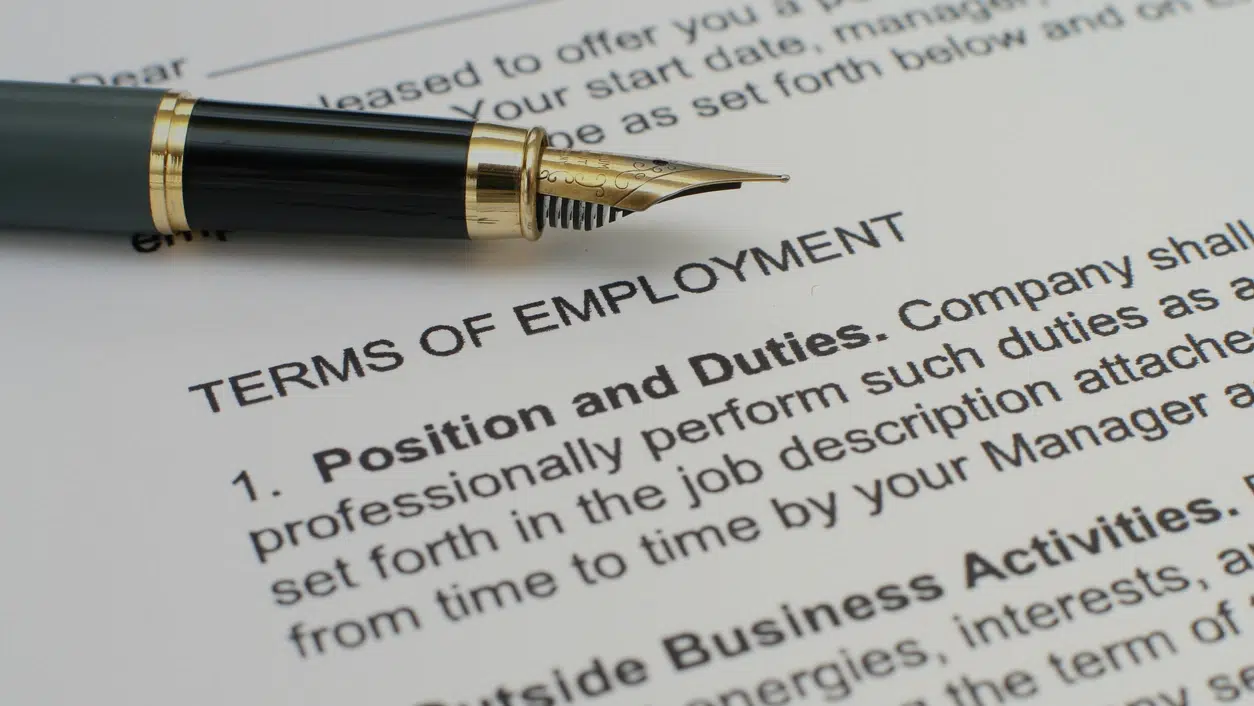California Employment Lawyer

How Can Our Employment Attorneys Help?
Employment law attorneys can bring individual civil suits as well as class action lawsuits. An employment class action lawsuit is brought when an a group of similarly situated employees are harmed by the same unlawful practices, and join forces to hold their employer accountable. Employment attorneys can help advocate for employee rights in numerous difficult situations in the workplace, including:
Employment Discrimination
Everyone deserves to work in a supportive, safe and fair environment.
Wrongful Termination
There are many reasons that a termination may be unfair or unjust; a termination may also be illegal and considered to be “wrongful termination.”
Whistleblower Retaliation
It is the public policy of the State of California to encourage employees.
Workplace Retaliation
It takes guts to stand up against unlawful practices in the workplace.
Failure to Accommodate a Disability
Nearly one in every four Californian adults live with a disability.
Wage and Hour Violations
Wage theft is when employers do not pay their employees for the work they have completed.
Employment Contracts
Employment contracts play an important role in defining the terms and scope of the relationship between an employer and an employee.
Equal Pay
The California Equal Pay Act, enacted in 1949, was intended to correct the centuries-old problem of gender-based wage discrimination and redress the segregation of women into historically undervalued occupations.
Family & Medical Leave Rights
It is not uncommon to need time away from work to address and care for health-related issues.
Hostile Work Environments
Federal and State employment laws protect employees from working in a hostile environment.
Mental Disability Discrimination
Mental disabilities may create additional challenges in many aspects of life, but they should never impact one’s status in the workplace.
Political Discrimination
Political affiliations and beliefs are incredibly polarizing in America today and can cause deep social divides.
International Employment Law
The international network of employers and employees can create confusion; it is hard to know what labor laws apply to who, and when.
Executive Employee Representation
There are many reasons why an executive employee might seek legal counsel.

California Employment Law
Work plays a crucial role in most of our lives. We spend significant amounts of time in the workplace and rely upon employment to provide for ourselves and our families. As such, it is important to feel safe, respected, and fairly treated at work. Unfortunately however, is a fact that employees in America experience harassment, discrimination, retaliation, and abuse at work. Because of this reality, it is empowering to understand the legal rights and protections that you have as an employee at work. Knowing your rights can allow for you to successfully minimize, and navigate through, problems that come up at work.
Dealing with an employment issue on your own can be incredibly stressful. Luckily employment attorneys are legal professionals dedicated to advocating for employees who are experiencing mistreatment or hardship. If you or someone you know is dealing with a problem at work, reach out to an employment attorney for support. Avloni Law is an employment law firm that is dedicated to supporting their clients through various employment matters. Consulting with an attorney could be an important step towards asserting your rights and seeking the justice you deserve.
On the page below we will review some of the most common employment law issue areas that we work on, and go over some of the most frequently asked questions we receive from clients and potential clients.
Common Employment Law Issues Areas

Wrongful Termination
In California, employment is considered to be ‘at-will,’ meaning that your employer may fire you at any time without cause just as you have the right leave your job at any time without cause. Despite the state’s at-will employment policy, there are numerous ways that a termination could violate federal and state employment laws and thus be considered a wrongful termination.
Discrimination: Employment law makes termination for discriminatory reasons illegal. If your employer has terminated you because of your membership in a protected class, you have been wrongfully terminated. It is considered to be a wrongful termination if your membership in a protected class played a role in your termination, even if it was not the sole factor.
Protected classes in California include (but are not limited to): race, color, religion, sex/gender, gender identity, gender expression, sexual orientation, marital status, medical condition, military or veteran status, national origin, ancestry, disability, genetic information, medical condition, request for family care leave, request for leave for employee’s own serious health condition, request for pregnancy disability leave, and age (over 40).
Retaliation: State and federal law prohibits termination as a form of retaliation. The law protects employees who report unlawful practices at work, including discrimination, harassment, wage practices, and more. If you make a complaint of discrimination, harassment, or other illegal conduct to your employer, resist discrimination, harassment, or other illegal conduct in the workplace, or participate as a witness in a complaint made by a co-worker, your employer may not fire you as a result. If your employer has fired you because you reported or resisted any form of unlawful activity at work, your employer has retaliated against you and committed wrongful termination.
Protected Absences: The law entitles employees to take job-protected leave for numerous reasons, including but not limited to disability or medical leave. If your employer fires you for taking leave, or if your employer fails to provide job protection while you are on job-protected leave, your employer may have wrongfully terminated you.
Workplace Discrimination
Unlawful employment discrimination is the differential or unfavorable treatment of employees based on their membership in a protected class or participation in a protected activity. Protected classes in California include (but are not limited to): race, color, religion, sex/gender, gender identity, gender expression, sexual orientation, marital status, medical condition, military or veteran status, national origin, ancestry, disability, genetic information, medical condition, request for family care leave, request for leave for employee’s own serious health condition, request for pregnancy disability leave, and age (over 40). Differential or unfavorable treatment in the workplace could impact hiring, pay, benefits, workplace opportunities, performance reviews, physical or verbal treatment, assignments, and firing.
There are many forms of employment discrimination. Some of the most common forms of discrimination reported in California workplaces according to the California Civil Rights Department (CCRD) are disability discrimination (reported in approximately 20% of claims), sex and gender-based discrimination (reported in approximately 14% of claims), racial discrimination (reported in approximately 11% of claims), age discrimination (reported in approximately 11% of claims).
Disability Discrimination: The Americans with Disabilities Act (ADA) and the California Fair Employment and Housing Act (FEHA) prohibit employers from discriminating against employees with disabilities or medical conditions. The laws also grant employees the right to “reasonable accommodations” in the workplace. A reasonable accommodation is a change to an employee’s work environment, work duties, or work schedule that will help the employee perform their job, without causing “undue hardship” to the employer.
Sex and Gender Discrimination: Employers cannot treat employees differently based on their sex or gender identity, including what pronouns employees use or how employees prefer to dress. It is likewise illegal for employees to be treated differently because of their sexual orientation. Verbal or physical harassment regarding gender, sex, or sexual orientation, is illegal if it rises to the level of creating a hostile work environment.
Racial Discrimination: Racial discrimination involves the differential treatment of employees based on their race. It is illegal for an employer to treat an employee unfavorably because of their racial background, skin color, hair, and other physical features. Racial harassment, including the use of slurs, jokes, and offensive comments is also illegal in the workplace if the harassment is considered severe or pervasive in the workplace.
Age Discrimination: Age discrimination is the unfavorable treatment of employees who are 40 and older. Age discrimination may impact hiring, job opportunities and treatment in the workplace, and decisions to terminate employment.

Sexual Harassment
Sexual harassment is prohibited in the workplace. Sexually inappropriate behavior at work rises to the level of sexual harassment when it either, one, creates a hostile, offensive, oppressive, or intimidating work environment, two, deprives its victim of their statutory right to work in a place free of discrimination, three, when the sexually harassing conduct sufficiently offends, humiliates, distresses or intrudes upon its victim so as to disrupt the victim’s emotional tranquility in the workplace, four, affects the victim’s ability to perform his or her job as usual, or fine, interferes with and undermines its victim’s personal sense of well-being.
Sexually harassing behavior may include lewd comments of a sexual nature, sexual innuendos, sexual comments, offensive comments, unwelcome sexual advances, requests for sexual favors, inappropriate text messages, making insulting comments about someone’s gender identity or sexual orientation or asking about someone’s sexual orientation, unwanted physical conduct of a sexual nature such as inappropriate and suggestive touching, kissing, rubbing or caressing of a person’s body and/or clothing, unwanted sexual advances such as repeatedly asking for dates despite being rebuffed or asking for sexual favors, making sexually offensive gestures, remarks or facial expressions, unwelcome conduct such as sexual assault. Such harassing conduct may constitute workplace harassment and violate California law, as well as federal law.
To prevail on a sexual harassment claim, an individual must show that they were subjected to unwelcome conduct that was based on sex and was sufficiently ‘severe’ or ‘pervasive’ so as to create an intimidating, hostile, or offensive work environment. Factors to consider include the nature of the unwelcome conduct, the frequency of such conduct and the context in which the sexually harassing conduct occurred. Whether the sexual conduct is ‘pervasive’ is determined from the totality of the circumstances. Whether the sexual conduct is ‘severe’ is determined based on whether the conduct is sufficient to create a hostile or offensive work environment.
According to federal and California state law, sexual harassment may take the form of either quid pro quo harassment or hostile work environment harassment. Quid pro quo harassment occurs where an employee is expected to engage in sexual conduct to receive job benefits – such as retaining a job or receiving favorable performance review or promotion. Hostile work environment harassment occurs where the sexual conduct creates an intimidating, hostile or offensive working environment.
Disability and Medical Leave
In California, disabilities are broadly defined as conditions that limit a major life activity, including physical and mental disabilities, as well as medical conditions such as cancer or HIV/AIDS. California definitions and protections can be broader than protections under federal law.
Disability Discrimination: California enacted the Fair Employment and Housing Act (“FEHA”) in 1959 to protect workers experiencing discrimination based on their membership in a protected class. The law prohibits discrimination against a qualified individual on the basis of disability. There are various ways an employee can prove discrimination based on a disability. One way is to show that the employee was employed by the company, that the company knew the employee had a medical condition that limited a major life activity, the employee was able to perform the essential job duties of his position with reasonable accommodation and yet the company discharged, or took negative action against, the employee.
Reasonable Accommodations: Workers with disabilities have the right to reasonable accommodations. To receive an accommodation an employee need only show that the requested accommodation is reasonable on its face. Once you request an accommodation, your employer must make a reasonable effort to determine the appropriate accommodation. This is called the interactive process. You must also be willing to participate in the process of developing and implementing the accommodation. At this point, the employer must either grant the requested accommodation or demonstrate undue hardship caused by granting the accommodation. An undue hardship entails a significant difficulty or expense to the employer.
Job Protected Leave: Workers with disabilities, short and long term, are also afforded protections under the California Family Rights Act (“CFRA”) which requires employers to provide an eligible employee with job-protected leave to care for their own serious health condition, or to care for a child, spouse, domestic partner, parent, grandparent, grandchild, or sibling with a serious health condition. Employees at companies of 5 or more employees are eligible for protections under the CFRA if they have one year of service and have worked 1250 hours in the past year (can be non-consecutive). You may also request job-protected leave as an accommodation under the FEHA.

Wage and Hour
Wage and hour violations occur when employers do not pay their employees for the work they have completed. There are a variety of ways that wage and hour violations can occur in the workplace, including the following.
Minimum Wage Violations: Employers are required to pay employees no less than the minimum wage. The California minimum wage is higher than the Federal minimum wage, and changes annually. If your employer pays you less than minimum wage for any hour that you have worked, they are committing a wage and hour violation.
Overtime Violations: If you are a non-exempt hourly employee and you work over the standard 8-hours per day and 40-hours per week your employer owes you overtime pay, which is 1.5x your regular rate of pay. In order to claim overtime, you must accurately report the hours you are working to your employer. If your employer does not pay you at a higher rate for your overtime worked, they may be committing a wage and hour violation.
Meal and Rest Break Violations: In California, workers paid by the hour are entitled to regular uninterrupted meal and rest breaks. Employees may take a 10-minute break for every 4-hours of work, and a 30-minute break for every 8-hours of work. If you do not receive a break, your employer must pay you a break or meal premium, which is equal to one-hour of your time. If your employer does not allow you breaks or pay you missed break premiums, they may be committing a wage and hour violation.
Employee Misclassification: There are multiple types of employees; exempt employees, independent contractors, and non-exempt employees. Exempt employees typically perform work that require special licenses, such as engineers, doctors, lawyers, or work in a management role. They are paid a salary that is not based on the amount of time that they work. Independent contractors are typically paid based on the completion of a project, not based on the amount of time that they work. Non-exempt employees typically perform non-management work or work that does not require a specific professional degree. Non-exempt employees are paid for their time, and are thus entitled to overtime, and meal and rest breaks. If an employer falsely classifies an employee as exempt or as an independent contractor, and therefor fails to pay for overtime or breaks, they are committing a legal violation.

Retaliation
California law prohibits retaliating against individuals who have filed a complaint, testified, or assisted in any proceeding regarding race, color or national origin-based harassment or discrimination. To establish retaliation, an employee must show that he or she engaged in a protected activity; the employer subjected the employee to an adverse employment action; and the protected activity and the employer’s action were casually connected. An employee’s formal or informal complaints to a supervisor regarding unlawful harassment or workplace discrimination is a ‘protected activity’ and actions taken against the employee after such complaints may constitute retaliation. Close proximity in time between complaints of harassment and employment discrimination and the adverse employment action creates a legal inference of unlawful retaliation.
Whistleblower Retaliation: A whistleblower is an employee that discloses information that he or she reasonably believes violates state or federal law; or local, state, or federal rule or regulation; or involves employee safety or health. An employer may not retaliate against an employee who is a whistleblower, or against an employee that refuses to participate in an activity that he or she believes would result in violation of state or federal laws.

Contracts
There are many kinds of agreements and contracts, both written and verbal, that define the relationship between employer and employee. Agreements and contracts are relevant throughout the employment process, from the date of hire through end of an employment relationship and beyond. Employment attorneys can be helpful both when establishing and negotiating the terms of an employment contract, or in the event that there is a breach of contract.
Employment Contracts: When an employer employs any worker, an employment contract is established. This contract may take the form of a signed written document, may be based on provisions in an employee handbook, or could be established through a verbal agreement. Whether written or implied, an employment contract establishes the terms of the relationship between the employer and the employee. Employment contracts often cover topics such as employee classification, compensation, bonuses and commissions, the duration of employment, employee schedule and responsibilities, sick time, performance expectations, and just causes for termination, among other things. Before you sign any employment contract, it may be helpful to have it reviewed by an employment lawyer. Depending on the nature of the job, an employment attorney can be helpful in establishing and negotiating the terms of the agreement.
Severance Agreements: When an employee is terminated or laid off, an employer may choose to provide a severance package and ask the employee to sign a severance agreement, signifying the end of the employment relationship. A severance agreement may offer the former employee monetary or other benefits, in exchange for other provisions intended to protect the employer. Often, a severance agreement will ask that the employee waive their right to sue the employer for discrimination or harassment. Before signing any agreement, carefully review its provisions. Employees may also negotiate the terms of the severance agreement before signing. Before you sign any separation agreement, it is highly recommended that you have it reviewed by an employment lawyer.

You can reach out to an employment law attorney at any point.
An employment attorney can help if you have questions about your employment situation, believe you have a claim against your employer or have already begun the process of bringing claims against your employer. It is advantageous to reach out to an employment attorney as soon as possible regarding potential employment law claims you may have so that they can provide legal advice on how to build a strong case and make sure that you are meeting any administrative deadlines.
Frequently Asked Employment Law Questions
How do I know if I have an employment law claim?
The truth is, it’s hard to tell! Whether or not you have a claim, and the strength of that claim, is entirely case dependent, and may depend on factors outside of your control. When determining whether or not you should file a lawsuit, is important to consider not only what happened to you, but a multitude of other factors including when it happened, what evidence you have to show that it happened, and what else was happening in your workplace at the time.
An attorney specializing in employment law may be able to assist you in determining if you may have a case during their intake process. Consult with an attorney to understand your options.
How long do I have to file an employment law claim in California?
Employment law claims are subject to statutes of limitations. If you miss the deadline to bring a case, you risk losing your right to pursue that particular claim. One of the reasons it is important to contact an attorney promptly is so that you can be aware of any pending deadlines. All employment claims have a statute of limitations.
Can I file an employment claim if I quit my job?
Quitting your job may or may not impact the strength of your legal case. Consult an attorney before quitting if you are considering bringing a legal case.
Wage and Hour: If you have brought wage and hour claims against your employer quitting your job will not impact your legal case. The damages in this type of case are objective, and leaving your job will not change your argument as to how much money you are owed.
Discrimination and Harassment: If you are considering bringing a discrimination or harassment case, it may be helpful to consult an attorney before quitting your job. Constructive discharge occurs when an employee leaves their job because their employer has made it impossible for them to perform their work duties, and they have no option left but to quit. Constructive discharge may occur, for example, if sexual harassment has created a hostile environment so that you can no longer perform your job duties because you no longer feel safe going into work. It is important to note that the bar for proving constructive discharge is high.
What should I expect when I reach out to an employment lawyer?
Reaching out to a law firm may be intimidating. Here is what you can expect to happen in the initial steps:
Intake phone call: When you reach out to a law firm for a consultation, you will most likely be scheduled to have an intake phone call appointment. This appointment may be with a legal assistant, a paralegal, or with an attorney. The aim of this call is typically to gather the basic facts and timeline of your issue, answer questions that you might have, and assess whether or not the firm may be a good fit for you. On this initial call it is important that you are ready with your facts; be prepared to talk in detail about what has been going on and when relevant events have transpired. Remember that firms are likely getting multiple calls a day, it is beneficial to you to communicate your situation efficiently and effectively. You may want to prepare for this call by writing out a timeline of events, or making notes of some important details to mention. Note that even on an initial intake phone call, attorney client privilege is active – everything you share should be kept confidential.
Fact Gathering: Following the initial intake call, the attorneys may choose to take a closer look at your case before moving forward. Be prepared to have multiple follow up conversations to review your facts in detail. The lawyers will likely also request to see what documents you have, and may ask you to send them copies of relevant emails, notes, and text messages. It is important for attorneys to understand the evidence associated with the facts in order to assess whether or not they can take on the case.
Representation Agreement: After deciding that the firm would like to take you on as a client, the attorneys will send you a representation agreement for review and signature. Representation agreements will contain important information about the scope of the potential representation, the breakdown of fees and costs, and expectations of the agreement. Always review a representation agreement carefully before signing and make sure you understand and agree with the terms. If you have questions or concerns about a representation agreement, call your attorney to discuss before signing.
How do I choose the best lawyer for my employment law claim?
There are several factors that go into picking an attorney that is the right fit for you. You can gather a lot of this information during their intake process. Take note: Do they respond to your inquiry promptly? Do you feel heard and understood during your initial call(s)? Do they send you follow-up emails, and respond to your emails in a timely manner? Are they able to sufficiently provide answers to your questions? The attorney-client relationship is a two-way street – it is important that just as an attorney is deciding whether or not your case is a good fit for them, you are deciding whether or not they are a good fit for you.
Attorney-Client Relationship: First and foremost, it is critical to work with someone who you feel comfortable talking to, and who you think is capable of advocating for you, and who you trust to listen to you and tell your story. Over the course of your legal action you will spend a lot of time communicating with your attorney; they will likely speak with your friends, colleagues, and family, and get to know the more intimate details of your work life. Choosing an attorney you trust to hear you out and advocate for your best interests is key!
Practice Area: It is important to pick an attorney who has the skills and experience to handle your case. Pick an attorney whose practice areas align with your needs. For example, maybe don’t hire a wage and hour class action attorney to litigate your individual sexual harassment case. Likewise, if you believe your case may go to trial, try to find a lawyer with real trial experience; if you think your case will take place in arbitration, it may be helpful to find an attorney with arbitration experience; if your case needs to be filed in federal court, find an attorney who has experience that relates. You may be able to learn about an attorney’s work history through their website, press releases, and client testimonials.
Financial fit: Find an attorney who makes sense for you financially. When hiring legal representation, it is important to understand the cost-benefit. Your attorney can advise you about the damages you might be able to recover, along with what fees they may charge you. Make sure to figure out what your attorney expects you to pay the up-front, what they hope to recover by bringing your case, and what percentage of your recovery they plan to claim. Lawyers cannot know the outcome of any case before its conclusion; if an attorney is promising you any certain verdict, it is advisable to be skeptical.
How will I afford an attorney?
It is no secret that hiring an experienced employment lawyer can be expensive. Whether or not it is worthwhile to hire an attorney depends on the specific circumstances of the issue, and on the attorney fee agreement.
When hiring legal representation, it is important to understand the cost-benefit. Your attorney can advise you about the damages you might be able to recover, along with what fees they may charge you. In some states, including California, you may be able to recover your legal costs if you prevail in your case. Be sure to understand the attorney fee structure, what their flat fees are, and what they may charge you. Some attorneys may charge a retainer fee at the beginning of the process to kickstart the case. Other attorneys may offer to work on a contingency fee basis, meaning that they will only recover fees if you prevail in your case. Depending on the facts of your case, attorneys may be flexible about that kind of fee structure they are willing to offer.
Importantly, many lawyers will offer a free initial consultation, and much of the advice that an employee or an employer might need can be gathered from a simple consultation. Consulting with an attorney is always smart; it can help prevent future costly litigation down the line, or allow you to position yourself in a favorable position moving into any future litigation. During the consultation process, you can discuss attorney fees and review the potential cost-benefit of bringing your legal case together.
What can I expect after signing an agreement with an employment lawyer?
The lifecycle of a legal issue or a case is entirely dependent on the facts of the case, and the priorities of the plaintiff and the defendant. However, there is an order in which a case typically kicks off. Here is what to expect at the start.
Fact Gathering: After signing a representation agreement with a law firm, the legal team you are working with will likely want to collect a detailed timeline of events, copies of relevant notes, emails, text messages, and documents. Your team may also want to contact and speak to any favorable witnesses to your case. To speed up the process, have your documents and witness list organized and ready to send to your team.
Send a Demand Letter: Depending on your situation, an employment attorney may suggest kicking off the negotiations by sending a demand letter to your employer or former employer. A demand letter often lays out your claims, the facts of your case, and warms that you intend file a court complaint against your employer. Typically, a demand letter will also include a proposed settlement agreement that you would be amenable to in lieu of pursuing litigation. Your lawyer will draft the demand letter, and will likely call you to review its contents before sending it to your employer.
Exhaust Administrative Remedies: In order to file a complaint under federal or California state law, you must first exhaust your claims by filing a charge with the appropriate government agency. If you are bringing claims involving federal statutes, you will have to file with the Equal Employment Opportunities Commission (EEOC). If you are bringing California state claims, you will file with the California Civil Rights Department (CCRD). You may want to let the administrative agency review your case before acting, but more likely than not you will request an immediate Right to Sue letter. Once you have exhausted your administrative remedies and received a Right to Sue, you will be able to bring a complaint in court.
File a Complaint: If the demand letter does not settle the matter, the next step typically will involve filing a complaint in court. More often than note, the complaint will be similar to the demand letter in content. It will describe the parties to the case, lay out the case facts, and outline each legal claim. Once your attorney drafts and files the complaint, they will serve it on the defendant.
Discovery: After the complaint is filed and served, the parties may initiate discovery. Likely, your attorney will serve discovery requests upon your employer, and your employer will serve discovery requests on you. These requests may include form interrogatories, special interrogatories, requests for admission, and requests for documents. Your attorney will work with you at this stage to gather and respond to your employers’ requests with the appropriate information and documentation.
Litigation: Litigation can span several years. The steps that a case may take are situational and depend on the facts and interests of the parties. Your case may settle quickly, or make take years before going to trial. At any point in a case, reach out to your attorney to get information about where your case stands, and what major next steps may be.
What damages can I recover against my employer in an employment law claim?
The amount and types of damages you can recover in a California employment case depend on the facts of the case. Generally, the damages revolve around the economic and non-economic impact that your employers’ actions had on you.
Economic Damages: Economic damages refer to the financial impacts of your employers’ actions. There are a number of different types of economic damages, and depending on the type of claim you have, a combination of these damages could be awarded to you. The most common economic damages include lost wages and employee benefits, back pay, liquidated damages, and attorney fees.
Non-economic damages: non-economic damages attempt to quantify the emotional toll that your employers’ actions had on you. Non-monetary damages that have no set method of calculation, but can include emotional distress damages. Evidence of emotional distress can be demonstrated through medical and therapy appointments, witness testimony, and other notable changes in daily life.
What should I do if my employer retaliates against me for filing an employment claim?
It can be awkward and stressful to take legal action against your current employer. It is natural to fear retaliation, or worry that things will change. However, the law protects employees who take legal action against their employers. If you retain an attorney, send your employer a demand letter, or file a complaint against your employer, your employer may not treat you unfavorable as a result. If your employer has treated you differently because you have taken any legal action, your employer is violating your civil rights and may be liable for retaliation. Make careful note of the retaliatory behavior, and speak to your attorney immediately if your employer is taking retaliatory action against you.

Call Us Today
If you have questions about your employment situation, do not hesitate to give us a call. We are here to help. If you or someone you know has been mistreated, harassed, or abused at work, please get in contact with us right away. We at Avloni Law are here to be on your side, to advocate for you, and to protect employee rights.
